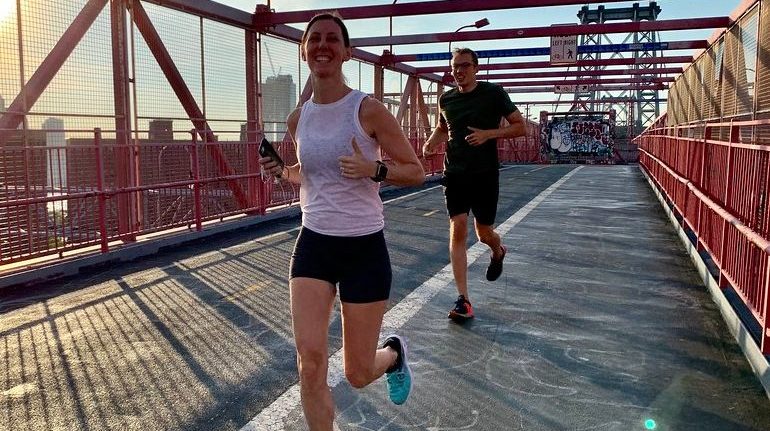
Guest Contribution by Esther Atkins, Professional Runner & McKirdy Trained Coach in Greenville, SC
The pandemic has been devastating for some, and a major disruption for all. Whether you spent this past year running more than usual or dropping the ball a bit, major races are picking back up in the fall, so it’s time to get back into your old groove, or to find a new one.
Scenario 1: Getting back into it
For those of us who haven’t been running as much, if you want to race well and enjoy the fall season, now is the time to get back into a weekly rhythm.
Don’t try to jump back into your pre-pandemic mileage, but rather ramp yourself back in to avoid injury. Over the course of 3-5 weeks, build back up to the number of days you would normally run, even if that’s just 15-20 min for each run session as a way to get back into a rhythm.
Then, slowly build each run up into the mileage you’d like to see for your marathon build-up. This phase may take another 1-3 months, depending on your mileage goals.
Once you’ve reached that goal for your build-up, it’s time to start adding in strategic speed work and specific long runs. This phase should last around 3 months prior to your target marathon.
Adding it all together, you’ve got about 5-7 months of preparation for your fall marathon, so get laced up!
Scenario 2: Coming off a really strong base
If you’ve been using your time away from the gym and regular commute as bonus time for running, with loads of mileage but not a whole lot of speed work, it might actually be time for a break!
With all the daily streak celebration out there, it can be easy to forget the power of rest. While running streaks are awesome for building consistency, they can often impede other forms of progress, including the benefits of periodization within your training – setting aside time for easy mileage, hard training, and also recovery!
If you’ve been doing a lot of running without specific goals, consider a short vacation from training, and then map a plan working backwards from your goal marathon to get back on track.
Example: Let’s say you’re targeting the Boston Marathon on October 11.
Your first step would be to count back 12 weeks to the beginning of your marathon-specific phase.
Next, I’d recommend factoring in 2 weeks of mental/physical rest and recovery prior to that build-up. Sometimes this takes the form of 2 weeks completely off, while others use this time to run with slower friends, maybe out of the norm cross training, or just log easy miles (which can look like a walk or hike)… but significantly less than usual.
In the Boston build-up scenario, you could fill your summer with either focus on speed or volume. To work on speed, have fun training and racing shorter distances by targeting a Fourth of July road race. If you want a volume focus, try just running easy, but building your mileage up to (or even beyond) your peak mileage goal for your marathon build-up before taking a little mental reset and then going into your marathon-specific build!
Strength, Nutrition, and General Maintenance
Don’t forget, as more of us become fully vaccinated and restrictions loosen, it will be important to get back to the gym and reset the balance in our running.
Strength:
It’s helpful to work with someone who knows you, supports your running goals, and is able to guide you in a routine that works well for your schedule. It doesn’t matter how perfect a workout plan is if you can’t make it fit into your schedule on a regular basis! So, find something that is doable and sustainable for where you are in your training cycle and with all of the other elements in your life.
Nutrition:
Raise your hand if you’re like me and sick of the question, “what are we having for dinner?” If you’ve gotten into a dietary rut, branch out and seek some variety. A registered dietitian could help you get on a good track for a fall marathon starting this summer. Or, check in with a service like InsideTracker to see what your diet is missing and what tweaks could help your body benefit even more from all the hard work you’re putting into your training!
General Maintenance:
It’s important to have a practitioner you trust, who knows you at your best, just in case anything comes up as you build your mileage. This person could be a physician, physical therapist, athletic trainer, chiropractor, massage therapist… and assuming they have your best interests in mind, they’ll refer you to another specialist if anything comes up that differs from their scope of expertise. You never want an injury to go more than a few days before getting it checked, so already having a relationship you trust will cut down the search and wait time, get quick answers, and provide solutions that can help you move forward with your training.
Ask a Coach!
We have enough decisions to make, so when it comes to the decision-making regarding our training, save time and reduce stress by putting trust in someone who knows what they are doing. Enter, a coach.
If you’re doing well on your own and are able to consistently stick to your own training schedules, perhaps all you need is an extra set of eyes to take a look at things and make sure it makes sense. Most coaches offer consults – many for free – so take someone up on that!
Many runners who come to me for coaching have been in training groups or found training plans online that worked for them… until they didn’t. There is a lot of information out there, and a lot of it can be conflicting. Sometimes it’s good to find a voice of reason to help you choose each logical next step for your training.
That being said, choosing a coach can be hard enough because there are lots of us out here! Ask friends for recommendations and then reach out to not just one, but several! Having a coach can be a big investment and important relationship, so be sure to find a good match for your needs, communication style, goals, and personality.
No matter what route you take to get to a fall marathon build-up, leave yourself open to a wide range of possible outcomes! You never know what a year of change will do for your performance.
Put your best foot forward to crush your running goals. Call a local CORA clinic or click HERE to schedule your appointment today for a personalized Running Assessment!
